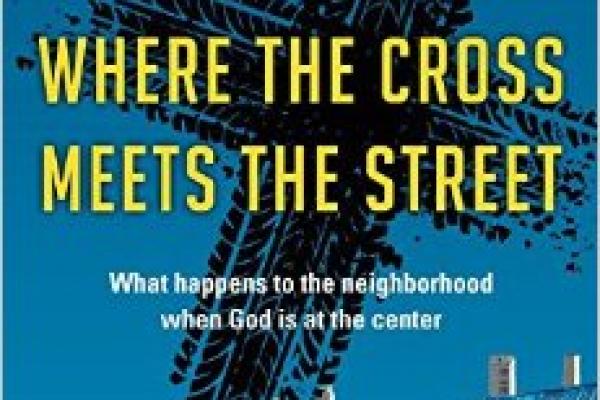NOEL CASTELLANOS is the CEO of the Christian Community Development Association, a network of Christians committed to seeing people and communities restored spiritually, economically, physically, and mentally. In order to nurture that holistic work, committed CCDA practitioners move into under-resourced neighborhoods and try to foster community. Castellanos’ experience with CCDA and a lifetime of missional community has informed his new book, Where the Cross Meets the Street: What Happens to the Neighborhood When God Is at the Center (IVP Books), a powerful testament to the necessity of externally focused ministry. He was interviewed via email by Dave Baker, who is responsible for school accounts and diversity initiatives at Baker Book House.
Dave Baker: You write that in terms of diversity, the evangelical community is far behind the rest of society. In what ways?
Noel Castellanos: Most evangelical denominations and organizations are not very ethnically or culturally diverse in leadership. With the amazing demographic changes that are happening in our country, how can we possibly be in a position to effectively reach and disciple people of color if the leadership on boards and in executive positions is all white?
What is your biggest challenge as CEO of CCDA? CCDA is a broad and diverse family held together by a core commitment to be a witness of the kingdom in the most vulnerable neighborhoods. My biggest challenge is to create an environment where everybody feels valued and respected in spite of our racial, theological, and denominational differences. Our call is to love one another across racial and class lines and to demonstrate that God’s people can be at the forefront of loving the poor.
Why do you recommend a 15-year-minimum commitment for people who would like to move into a community and apply the CCDA philosophy? CCDA’s 15-year-minimum rule highlights the reality that our work is not a Band-Aid. If the focus of our ministry were simply to rescue individuals through personal salvation and development, then we could see lives touched by the love of Christ much sooner than 15 years. But sustainable community change cannot be done quickly. It has taken a long time for many of our most vulnerable neighborhoods to get to the state that they’re in. It is naïve to think that we can change and transform those neighborhoods overnight. I believe a long-term commitment to minister holistically in a community is the most effective way to for the church to engage neighborhoods that desperately need the witness of God’s love and power.
What books do you have on your urban ministry reading list? Anything by John Perkins. He has articulated a truly indigenous and contextualized theology of ministry among the poor here in the U.S. That is significant, and it is what I have tried to do myself from a Mexican-American perspective. Anything by Virgilio Elizondo is a must-read for those that want to understand urban ministry in the Latino context.
What are three things you would like us to know about your book? First, because of my commitment to developing indigenous leadership in our churches and in our country, I hope my story can be an encouragement to young Latino/as and others who need to see examples of leaders that look like them. And it is important for people to realize that nonwhite leaders are very capable of leading diverse institutions like CCDA. Second, I would love for my book to help others to discover what their God-given burden is. If I could encourage folks to consider a lifetime of service to the poor and the marginalized, that would excite me. Finally, I hope people will see a compelling way to better understand the kingdom approach that is needed to transform vulnerable neighborhoods, and to see what can happen when God’s people engage biblically in a neighborhood. When I think about places like Ferguson, Mo., I am convinced that the principles in my book can bring a lasting change that includes individual life change, compassion, development, and justice.

Got something to say about what you're reading? We value your feedback!
